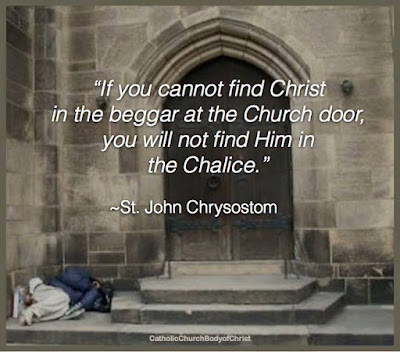My lectio divina for this week has included this from the Lectionary reading for Sunday: Acts
4:34-35. “There was not a needy person among them, for as many as owned lands
or houses sold them and brought the proceeds of what was sold. They laid
it at the apostles’ feet, and it was distributed to each as any had need.” As I
went on to the Epistle, my eye drifted down the page to 1 John 3:17, which is
not in Sunday’s reading but seemed to connect for me. “How does God’s love
abide in anyone who has the world’s goods and sees a brother or sister in need
and yet refuses help?” While complete communal ownership of all property in the
early church is not mentioned again, the ethic of using what God has given you to
help those in need persisted.
As I pondered this, I remembered
seeing a social media post in which someone defended buying a new luxury car
when a friend observed that a lot of poor people could have been fed for what
that car cost and a less expensive car would have been just as serviceable. The
defense of the luxury car was that by buying it, the owner was feeding many
people who worked to produce all of the materials that went into it and
building it. The post went on to reject the observation about feeding the poor
by labeling it “welfare” mentality that discourages people from working and
commending “capitalist” mentality that rewards work.
I have no interest in denigrating capitalism
per se and certainly not work. However, as one who aspires to follow Jesus, I
emphatically affirm generosity toward those in need. That was affirmed from the
Hebrew Scriptures through the New Testament Epistles. As Deuteronomy 15:11 says
“Since there will never cease to be some in need on the earth, I therefore
command you, ‘Open your hand to the poor and needy neighbor in your land.’” And
I dare not dismiss generosity to those in need as “welfare mentality.”

No comments:
Post a Comment